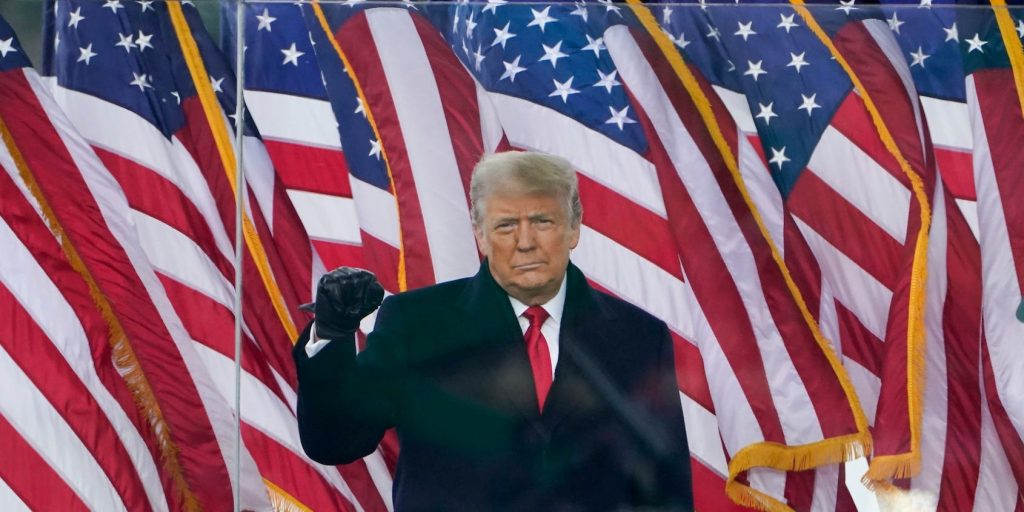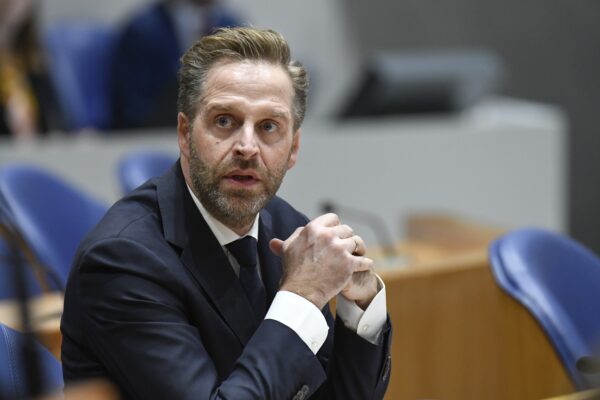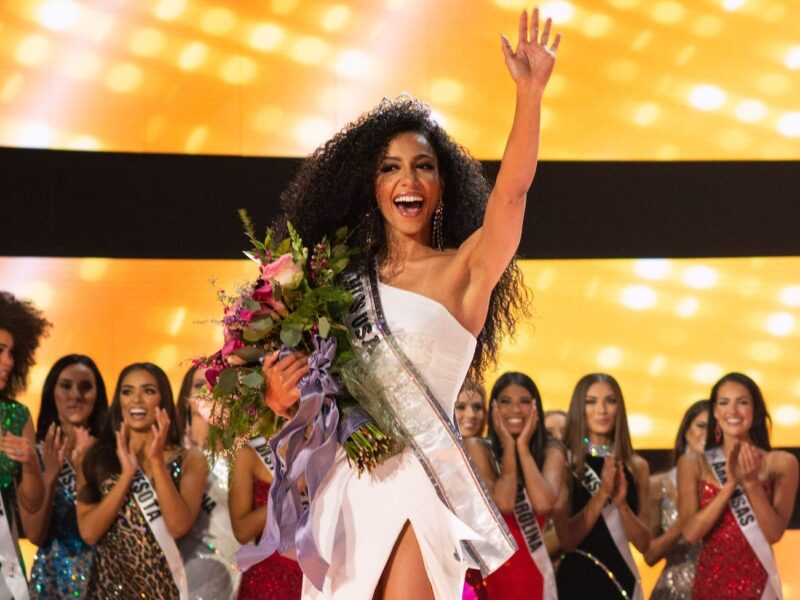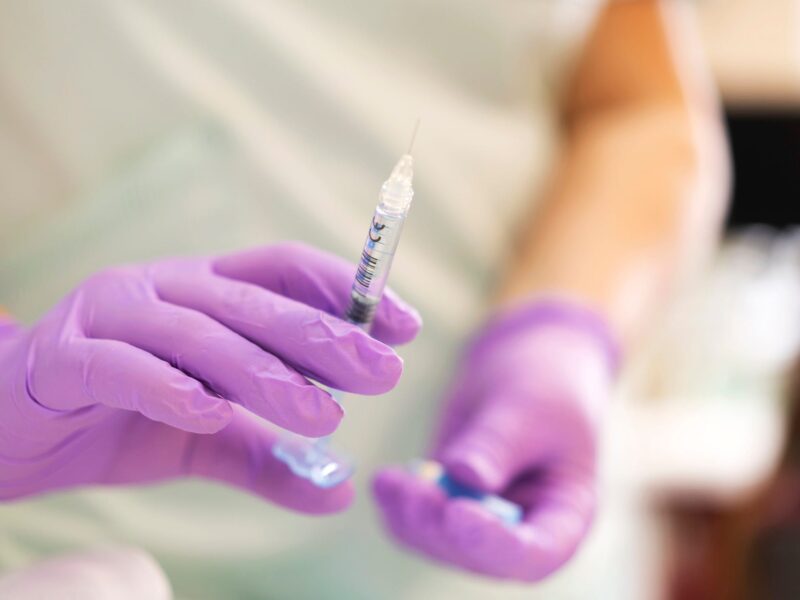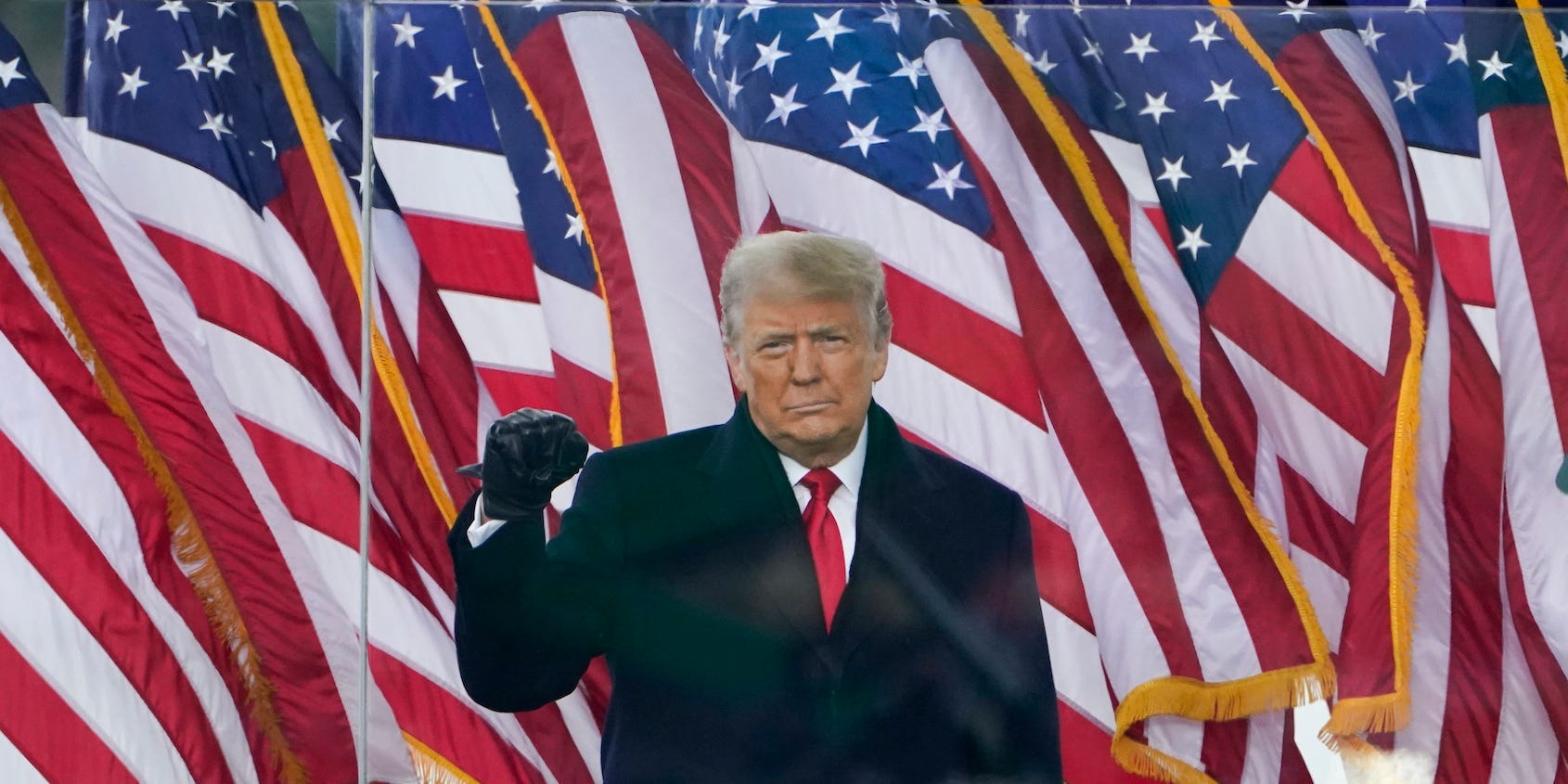
- A federal judge heard oral arguments in a trio of civil lawsuits against Trump and his allies connected to the Capitol riot.
- Judge Amit Mehta appeared deeply skeptical of Trump's lawyers' claim that he's immune from civil liability.
- House Democrats' lawyer also dismissed the argument as overly broad.
A federal judge on Monday appeared deeply skeptical of former President Donald Trump's broad claim that he cannot be sued over his remarks leading up to the Capitol attack because they're protected by presidential immunity.
US District Judge Amit Mehta asked pointed questions of Trump's lawyer Jesse Binnall as he argued that the former president was immune from civil liability over statements preceding the January 6 riot, including a speech urging supporters to "fight like hell" against the the 2020 election results.
Monday's court arguments centered on a trio of civil lawsuits, brought by House Democrats and Capitol police officers, alleging that Trump and his allies — including his son Donald Trump Jr., his former lawyer Rudy Giuliani, GOP Rep. Mo Brooks, and two far-right groups — instigated the attack that left five dead and more than 100 law enforcement officials injured.
At the outset of the hearing, Binnall argued that the cases were "chock full of propaganda" and "should be dismissed because they never should have been brought in the first place."
Binnall urged Mehta, who was appointed by former President Barack Obama, to disregard the content of Trump's statements and toss the lawsuits on the grounds that presidential immunity protected his speech.
Mehta questioned that argument, saying, "You would have me ignore what he said in its entirety?" He also asked whether Trump's speech ahead of the January 6 attack could be considered part of his official duties.
"Giving a speech is something that presidents do," Binnall replied, adding that Trump was using his "bully pulpit."
Later, Mehta asked Binnall whether there was anything a president could "say or do in his capacity as a candidate that would not receive immunity?"
Binnall said he could not think of an example, adding, "A president always has the authority to speak about whether or not any of the other branches, frankly, can or should take action."
Trump's speech at the Capitol on January 6 was "dead center on the responsibilities of the presidency," Binnall said.
Next up was Joseph Sellers, a lawyer representing House lawmakers who filed a civil suit accusing Trump, Giuliani, the Proud Boys, and the Oath Keepers of violating the Ku Klux Klan Act and conspiring to incite the insurrection.
Sellers dismissed Binnall's claims as overly broad.
Trump could hypothetically have been "standing in front of a group of people and speaking, he could be promoting treason," and according to Binnall's argument, "as long as he's speaking in front of the public, he can say whatever he wants to and do whatever he wants," Sellers said.
Monday's hearing marked the first test of whether Trump could be held civilly liable for his role in the breach of the Capitol, which is now the subject of a special House inquiry and a criminal investigation that federal law enforcement authorities have described as unprecedented.
In the aftermath of the January 6 attack, the House impeached Trump for a second time. Trump was later acquitted by the Senate. But, after the vote, Senate Minority Leader Mitch McConnell noted the civil lawsuits against Trump and said the former president "didn't get away with anything yet."
This story is developing. Check back for updates.
